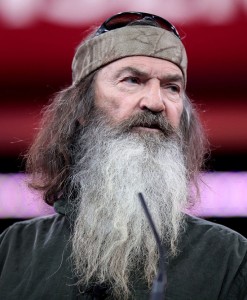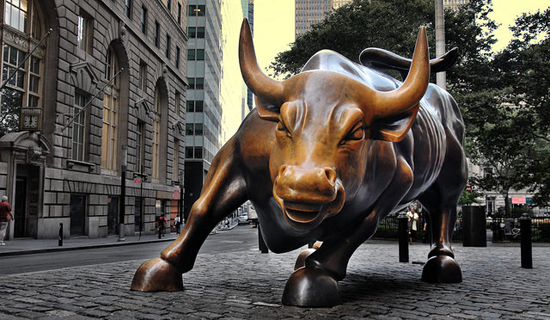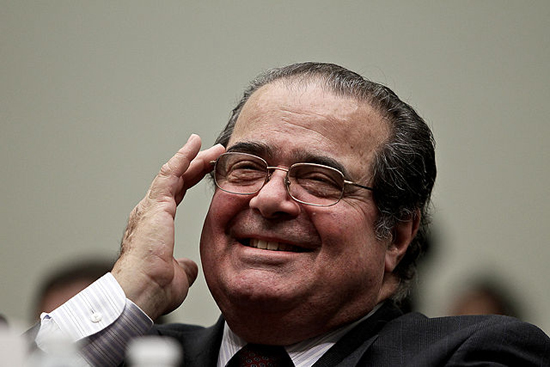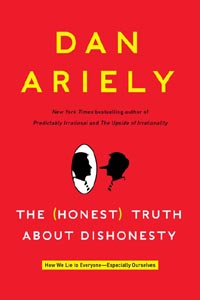The simple morality of atheism
This is a post to help people understand atheism. I write this because of how atheism is being portrayed in the media as a lack of morals.
The latest example comes from Phil Robertson at a Christian event in Florida:
Two guys break into an atheist’s home. He has a little atheist wife and two little atheist
daughters,” Phil said at the Vero Beach Prayer Breakfast, audio from which was obtained by Right Wing Watch. “Two guys break into his home and tie him up in a chair and gag him. And then they take his two daughters in front of him and rape both of them and then shoot ‘em and they take his wife and decapitate her head off in front of him. And then they can look at him and say, ‘Isn’t it great that I don’t have to worry about being judged? Isn’t it great that there’s nothing wrong with this? There’s no right or wrong, now is it dude?
Atheists are portrayed as having no morals, as not believing in any right or wrong.
This is ridiculous.
Atheists are actually extremely moral people because atheists own their actions. If we make a decision, we don’t have any god or gods to fall back on.
We don’t say things like: “Well, my God told me that these other people are evil so I’m going to have to fight against them.”
If we make a decision, we have to own it. We use the word “I”.
This is important for a couple of reasons. The first is that you can find justification for just about anything you want to find it for in a text such as the Bible or the Koran.
Therefore, decisions typically tell you more about the person or person(s) than the religion. Take the recent ISIS beheadings.
The people behind these actions are using Islam as a justification. Chapter 47, Verse 4 of the Quran:
Therefore, when you meet the unbelievers, smite at their necks.
They interpret this as a religious justification for their actions. What they’ve done is removed the “I” from their actions. Yet the “I” is still there. Someone beheaded these people. It wasn’t the Prophet Muhammad. It was someone who interpreted the Quran a certain way, a way that justified their actions.
You could also interpret the Quran much differently. You could look at what the Quran says about treating guests:
Has the story reached you of the honored guests of Abraham? Behold, they entered his presence and said: “Peace!” He said: “Peace!” (and thought: “They seem) unusual people.” Then he turned quickly to his household, brought out a roasted fattened calf, and placed it before them. He said: “Will you not eat?” (Quran 51: 24-27)
Honoring, or treating a guest well is a belief of Islam.
According to Aisha Stacey at IslamReligion.com: “Hospitality is a right rather than a gift, and the duty to supply it is a duty to God.” You can find justification for either belief in the Koran. Actions then, tend to say more about individuals than they do Islam.
For the record, I am closer to an agnostic than an atheist. My belief simply says: “I don’t know.” The same rule of responsibility applies, however.
As an agnostic, I would look at people who are different from me and ask myself: “How would I want to treat them?” If I decided I wanted to treat them as guests, the decision is on me. If I want to behead them, the decision is on me.
It is my decision. I own it. This is the simple morality of atheism (or agnosticism). When people own their actions, they tend to make much more responsible decisions.
Perhaps, this is why you never see an atheist on TV beheading anyone. Or you never see atheists getting together to rape people like in Phil Robertson’s story.
This is not to say that there aren’t bad people who are atheists. There are. It is to say, however, that the morality of atheists is that we are responsible for our actions.
Indiana
Indiana recently passed religious discrimination legislation.
Some religions justify discrimination against homosexuals using the bible.
Preachers like Reverend Franklin Graham, son of the late evangelist Billy Graham and president of the Billy Graham Evangelistic Association, preach that homosexuality is wrong and he knows this because it is in the bible:
This is the way we navigate. It’s the Word of God, and we preach the Word of God cover to cover.
Let’s take a quick look at the bible.
The Jesus I was taught about when I was young from The New Testament preached “Love each other as I have loved you.” Or is this the Old Testament God who preached punishment: “If a man lies with a male as he lies with a woman, both of them have committed an abomination. They shall surely be put to death. Their blood shall be upon them.”
The Old Testament was harsh. It also prescribed the death penalty for cursing a parent or doing work on the Sabbath.
This means when you read the bible you have to make decisions about what is most important and what to focus on.
Why does Franklin Graham choose to focus on what the bible says about homosexuality and not what it says about loving each other? Or not what it says about putting people to death for cursing a parent or for working on the Sabbath?
What we learn is more about Franklin Graham than we do about the bible. Mr. Graham is making conscious decisions just like I am. The only difference is that he is claiming they are not his decisions.
If I were claiming some of the same things he were, I would have to own my hatred of gay people. Mr. Graham doesn’t. He takes no responsibility for his decisions.
He says: “[Abortion] It is a sin against God, it’s murder. And today, young people in the church don’t know that homosexuality is wrong. Because pastors aren’t speaking about it.”
Why are these things wrong?
Not because he thinks they’re wrong. But because the bible says they’re wrong. As we’ve seen, the bible says a lot of things. Many of them quite contradictory.
This is why Mr. Graham’s decisions say more about Mr. Graham than Christianity.
A couple of other examples that have nothing to do with religion
The first is:
Let the markets decide.
As if somehow markets are people and they make decisions that are morally just. Well, the market doesn’t outlaw human trafficking so I guess it must be ok. The market has spoken.
Markets set prices. This is all they do. Well, not all.
They also allow people to justify themselves by saying that this is what the market “believes”. Markets are fine with human trafficking. They put a price on slaves. Markets were fine with child labor. They put a price on it. Markets are ok with discrimination too – they simply pay women and minorities less.
Sayings like this also allow people to justify their own actions by saying that this is what the market “believes”. It’s not ok to act in any way other than a consumer because “markets” or something will take care of everything.
Markets are fine with human trafficking. They put a price on slaves. Markets were fine with child labor. They put a price on it. Markets are ok with discrimination too – they simply pay women and minorities less.
This idea about markets serves two purposes: 1) It allows people to avoid responsibility, and 2) it encourages people to be passive and act only as consumers.
The second example is the judicial doctrine of originalism, or basing judicial decisions on what the founding fathers’ intended.
Now I don’t know a lot about the founding fathers, but one thing I can tell you for absolute certain is that they are dead. Now you can have some idea of what they were thinking at the time, but there is no way of knowing what they would say today.
There simply isn’t.
The other thing I know is that things today are very different than they were a couple of hundred years ago.
So why are we looking backward and arguing about what people might have thought hundreds of years ago?
Because, again, it is a way of taking the “I” and the responsibility out of the conversation. Instead of saying, I believe … certain members of the Supreme Court can shift responsibility onto some dead people. QED.
What is really going on, however, is that people like Antonin Scalia and Clarence Thomas are the people who have these beliefs. If they said “I believe,” however, people would react much more strongly to their beliefs. They might say things like “Isn’t that going backwards several hundred years?”
It is also a way to put off opponents by claiming that they are interpreting the Constitution incorrectly. A quite brilliant way, I might add. Instead of talking about what we want today, the argument turns into a discussion about what some dead people might want if they were alive today.
In both of these examples, rather than say “I believe” and put themselves on the line, people using these approaches are putting responsibility onto some other thing or person, taking themselves completely out of the equation.
They both use something else (markets and some dead founders) to justify their own decisions instead of owning it. This way they avoid responsibility.
The question to ask
Now let’s get to something useful. When you encounter someone who is doing this in any way shape or form, you face a couple of options.
You could argue what the founders or markets or some god or gods believe, or, you could ask the question: What do you believe?
These are two very different approaches.
In one, nothing is at risk. In the other, someone has to put himself or herself into the equation. People are much less likely to state radical opinions if they can’t justify it based on something else.
People are likely to say things like: “Homosexuality is a sin”. All that says is that the bible says something about homosexuality. This still doesn’t answer the question, what do you believe?
Keep asking.
Do you believe people shouldn’t be free to live their lives the way they want to?
How do you feel about gay people?
People are much less likely to say they hate someone if they have to own it. They are much less likely to restrict someone’s freedom if they have to say “Well, I believe these other people who aren’t me should have to live the way I want.”
They might say that they personally don’t believe in homosexuality and that’s ok. No one is asking them to be gay.
All anyone is asking is the freedom for people to be who they are.
Why do people cheat?
Behavioral psychologist Dan Ariely wrote a great book about why people cheat called The (Honest) Truth About Dishonesty.
His findings include:
- Very few people cheat a lot, but almost everyone cheats a little
- People don’t make decisions based on cost/benefit analysis
- People like to be seen as “good”
- People are more likely to cheat when they are less likely to be held accountable
- In order to be seen as good and still cheat, people find ways to rationalize their behavior
This is why it’s so important to ask: What do you believe?
It’s much easier to make decisions that affect other people negatively if you can rationalize these decisions onto another person or text or god. This is one of the things a god or gods or markets or founding fathers or some other text provide.
When you have to personally state your belief, people tend to be more moral. When you can foist it off on something else, people tend to be more willing to be less moral.
“What do you believe?” is a very powerful question.
Not what does your religion believe. Not what do the founding fathers believe. Not what do markets believe.
What do you believe?
What you will find, I believe, is that most people (including most Christians and people of faith) have a similar view of morality as you do. That is, you both believe that people should be responsible for their actions and decisions.
Are you saying atheists are better than Christians?
Not at all.
I stated my agenda up front. I am responding to claims made by people like Phil Robertson that atheists are immoral and I am explaining the simple morality of atheism to people who might not be familiar with it.
In conversations with people I know, I don’t argue agnostic versus atheist or atheist versus Christian or any one thing over any other. There are differences, sure.
I’m simply much more interested in a person’s beliefs and willingness to take responsibility.
Again, I consider myself an agnostic. Instead of saying “There is no god,” I would tend to say “We don’t know”. What I share in common with atheists is that when I make decisions, the responsibility falls on me.
These decisions do not always work out for the best and that is also ok. I apologize. Or I figure out what went wrong and choose a new course of action. This is how people learn and it’s a good thing.
Whatever the case though, I own my actions.
I also share this in common with most Christians, Muslims, Jews, and other people of faith. Most Christians, Jews, and Muslims I know use their religion as a guide rather than absolving themselves of responsibility by claiming that they are just doing what some god or gods told them to do.
When I see people like this, I see people who are willing to take responsibility for their actions. This is more important to me than whether someone believes in god or not. More often than not, you’ll find people are pretty responsible whether they’re Christian, Muslim, Buddhist, atheist, or whatever.
The people I worry about are the ones who try to squirm out of their responsibility: People who claim God is talking to them, people who claim they know what the founders would think today, people who say “let markets decide,” people like Phil Robertson who try to establish a moral superiority, people like the leaders of ISIS, people like Franklin Graham.
People who avoid responsibility and try to convince you to do or not do something by referring to some nebulous authority that can’t possibly be questioned.
Because when people find ways to act while avoiding responsibility, their actions tend to be much more extreme.
—
 |
David Akadjian is the author of The Little Book of Revolution: A Distributive Strategy for Democracy. Follow @akadjian |
















Pingback: The simple morality of atheism | The main obstacle to equality is religion.